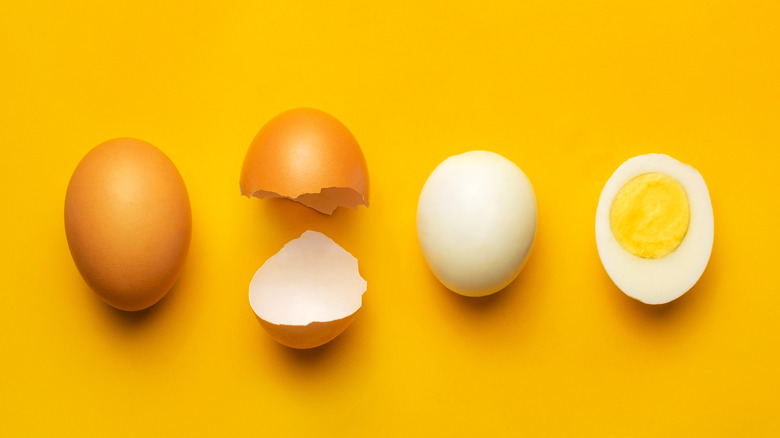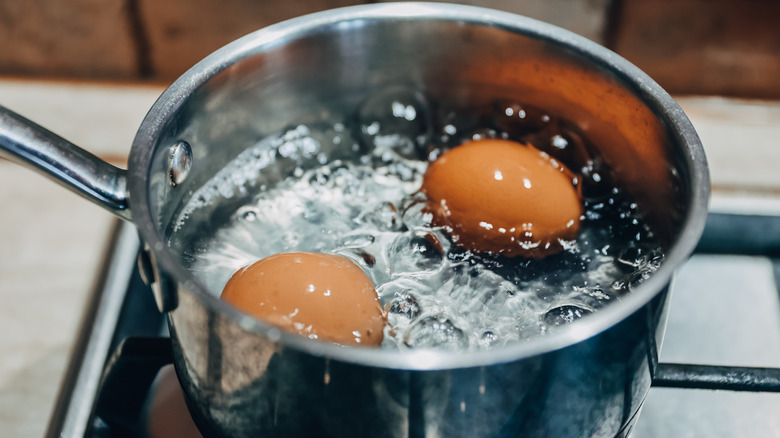How A Thumbtack Could Help Make Hard-Boiled Eggs Easier To Peel
There are few foods as versatile and perfect as the egg. On its own, an egg can be enjoyed as an omelet, scrambled, fried, poached, and boiled. Even within that last cooking method, there are soft-boiled eggs and hard-boiled eggs. So many choices! Although we don't all agree on which style of egg is the best (ahem, over easy), we can likely all concur that peeling a boiled egg can be very frustrating. There are several methods for more efficiently separating the eggshell from its interior, and, like everything else in life, there's an argument to support each one.
According to Slate, eggs that are a week or two old are easier to peel. This is because over time, the membrane beneath the shell becomes less attached to the egg white. (Just remember to pay attention to the expiration date!) Meanwhile, a secret ingredient that makes eggs easier to peel is a little white vinegar in the boiling water. Apparently, the acid in the vinegar helps break down the organic matter in the shell, making it thinner and more removable. And then there's a MacGyver-like method that uses an everyday office object to peel boiled eggs: the thumbtack.
Does the thumbtack trick really work?
Chef George Weld, formerly of the Brooklyn restaurant Egg, shared with Self that piercing the fatter end of the eggshell with a thumbtack just before boiling will help make peeling a breeze. (Just remember to use a clean thumbtack.) Scientists are divided on how and if this hack really works, according to Exploratorium. Some say the tiny hole allows hot water to enter between the shell and membrane, making the shell easier to remove. Some believe that the hole in the shell allows gases to escape, creating more breathing room for the shell to come off. One renowned chef is in the latter camp: Jacques Pepin's secret to perfect eggs involves the prick method, and he also likes to shake them in the pot once cooked and drained to give them an initial crack.
Of course, you need to boil your eggs before you get crackin'. There are two main schools of thought on how best to do this. The first method is to bring a large pot of water to a rapid boil before adding your eggs. The timer begins once the eggs are in the water. The other school of thought is to drop your eggs into a pot of cold water, cover the pot, and bring the whole thing to a boil. The timer begins once the water comes to a boil. Whichever method you use, you should cook your eggs anywhere from 4 minutes (for very soft boiled) all the way to 14 minutes (for a totally dry yolk), says Epicurious. Now that you know how these tips for making perfect hard-boiled eggs, it's time to head to the kitchen. In the mood for a classic Nicoise salad recipe, anyone?

